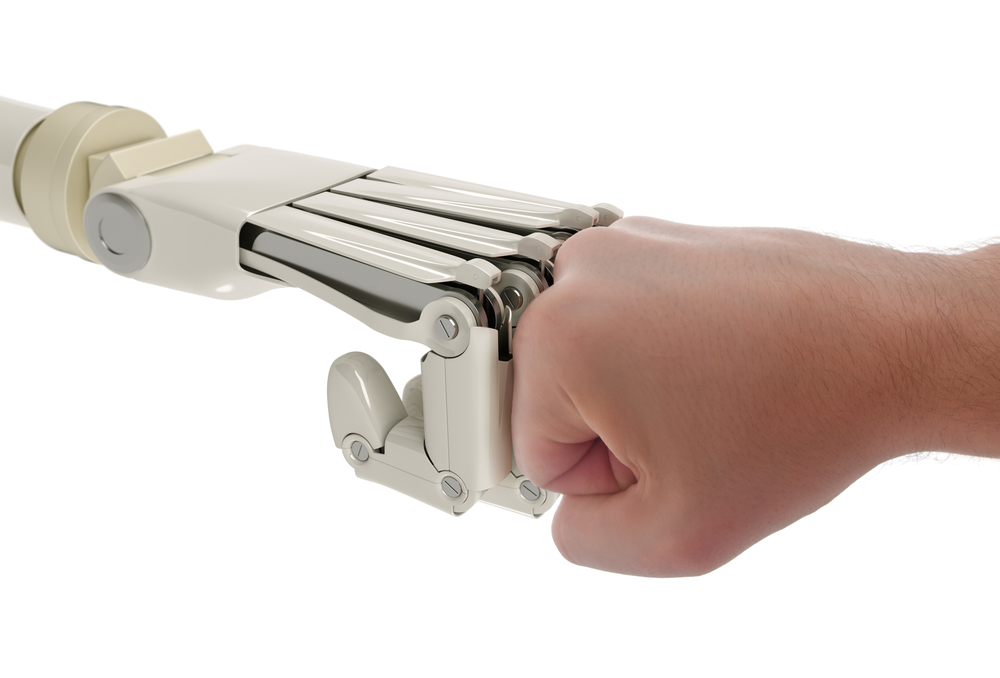Terminators roaming vast wastelands, crazed computers trapping astronauts, central intelligences instigating World War III. These are just some of the scenarios that Hollywood has dreamt up, which are giving artificial intelligence (AI) a bad name.
We’ve even seen Stephen Hawking express his doubts about AI, saying: “Creating AI will be the biggest event in human history… it might also be the last.” It seems that a notion has developed that robots and the AI behind them are out to get us. Or, at the very least, our jobs.
So how accurate is the glitz and glam of Hollywood, or indeed the doom and gloom of Professor Hawking? It’s easy to get caught up in the apocalyptic view Hollywood presents, but the reality, as you would expect, is very different – AI actually offers many benefits.
>See also: How artificial intelligence will make humans smarter
Plus, the most optimistic predictions suggest a genuinely freethinking artificial intelligence is decades if not centuries away, and a consensus on whether workers will eventually be replaced by synthetic replicants is even more distant.
The truth of the matter is that we are only just dipping our toes into the vast ocean of AI and the benefits it can offer. Most of us will be familiar with Apple’s Siri or Microsoft’s Cortana, personal assistants that live on our smartphones and scrape the internet for information before making recommendations based on available data. At the moment, these digital assistants are just that: assistants – helpful when asked to be helpful, but little more – and certainly not freethinking.
Working purely in a reactive way, this technology is designed to augment our own knowledge. Whether it’s double checking how you should rewire a plug, choosing the best route to take, or getting a little extra team support in a pub quiz, these applications are slowly becoming more and more useful. The early generations of these technologies have proven to be hugely popular and as a consequence we are seeing something of a progression from reactive service.
Rather than simply existing as audio versions of search engines, algorithms are being developed that can learn trends and styles. For example, if you are using the assistant to plot routes that you need to take, the technology can adapt to live information and make suggestions based on real-time information. This technology really is in its infancy, but it is something that is increasingly coming up within senior meetings at big enterprise companies.
As such, the incorporation of AI into our working lives is something CIOs and IT managers are trying to wrap their arms around at the moment. Many are already contemplating how it will form a part of their IT strategies in the years to come.
Where we are seeing this really take off is in the field service industry. When so much is dependent on getting the job done smoothly and efficiently, a service firm depends for its livelihood on organisation. In the future, it will no longer be down to strategy but assumption that firms have the best routes, the right stock, and well managed workforces.
With so many logistical calculations that need to be made in the service industry, the risk of human error is always going to be high. Employing a central AI function takes some of this risk away. It can crunch numbers immediately and assimilate critical information more accurately to arrive at optimal decisions more quickly and frequently than humans can.
Is AI therefore replacing the human element? Not at all – it is simply taking a laborious task away from an employee who can add more value tackling a more challenging and subjective problem.
It is highly unlikely that AI will ever be able to display the creative and intuitive capabilities needed to match humans at the tasks we exceed in, those that are not always black and white, right or wrong.
Fundamentally, the service industry is about people solving problems for people. Human issues need human solutions. AI will only ever be able to support that problem-solving structure; it cannot replace it.
>See also: Get smart: how smart machines are bringing us closer together
For businesses that are today assessing where they can sprinkle some AI functionality, the key to success will be identifying the areas within a business that could most benefit from automation. Working back from the problem, a business can then deploy their resource for high-value tasks whilst reducing the risk and waste created by essential but time-consuming lower value challenges.
Modern day AI is not simply a glorified search engine, nor is it the apocalyptic despot it has often been depicted as. Instead it is a tool that, like every other, needs to be used correctly to garner the maximum amount of value.
Will jobs one day be replaced by AI? It is misleading to think of AI in this way. Technology will dramatically change the nature of our jobs, but it won’t take them. Rather, it will free up individuals to focus on higher value challenges that can only be tackled by a human mind.
Sourced from Tim Faulkner, ClickSoftware







